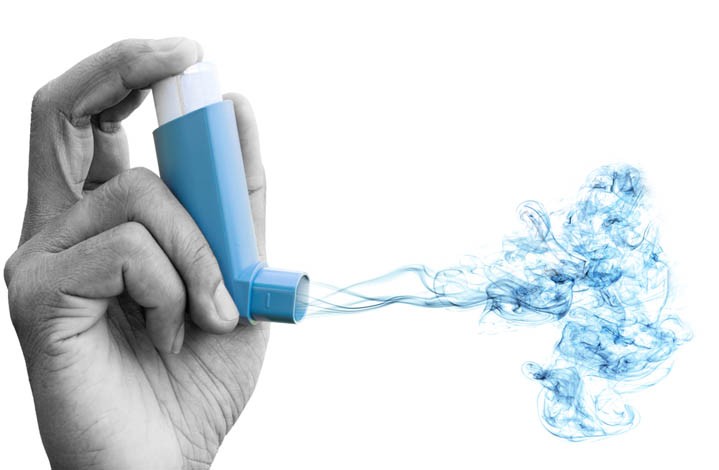
Doctors underline the need to inform people about the dos and don’ts of asthma, an ailment which is on the rise in Pakistan

When people have difficulty in breathing they resort to self-medication or heed to whoever has whatever to suggest. This attitude should be completely shunned. These views were expressed by most pulmonologists at a seminar, titled ‘You Can Control Asthma,’ which was held recently in connection with the World Asthma Day that falls on May 2.
Jointly organised by the Mir Khalil-ur-Rahman Memorial Society (MKRMS) and Pakistan Chest Society together with Highnoon Laboratories, the seminar saw leading doctors and asthma specialists present their findings on the ailment. It was revealed that the number of people suffering from asthma is around 10 million in Pakistan. In Punjab alone, the number is estimated to be 2 million. According to the office of Director General (DG) Health, Punjab, it was 1.7 million in 2013. This shows that the cases of asthma are on the rise.
Prof Dr Ashraf Jamal, Joint Secretary, Pakistan Chest Society, and Associate Professor at Pulmonary Medicine Department, Services Hospital, spoke of allergic asthma and generic asthma which are sometimes transferred from generation to generation. "If the parents or their siblings have it, the child shall have it too," he said.
"Intensive coughing, difficulty in breathing, whistling and wheezing while exhaling, and gasping for breath are all symptoms of asthma."
Dr Khalid Waheed, Professor of Pulmonogy at Jinnah Hospital, added, "Asthma is not age-related but there is a surprising fact about it -- if it occurs in early childhood, it disappears as the person reaches adulthood."
Researches show that food items almost never cause asthma while an unhealthy and unclean environment containing smoke, smog, and dust are very much responsible. "Pets’ fur poses hazard, especially when the cats rub their skin with saliva. The saliva turns to dust after it dries, polluting the environment, which leads to causing asthma," he said.
Villages too are polluted. As Prof Dr Jamal put it, "Especially in summers, when wheat and cotton crops are ready for harvest, chemical sprays and thrashers create pollution, thus triggering asthma."
He pointed out other factors such as odours of perfumes, shampoos, soaps, and home cleaning chemicals.
"Polluted environment is the main cause of asthma," said Dr Ghulam Rehmani, Medical Superintendent of Nawaz Sharif Kidney Hospital Swat. "Cigarette smoke, dust rising from construction materials, and deforestation are other factors that can trigger asthma. Another big issue is illiteracy and ignorance because of which people are becoming asthmatic. Self-medication can create complications and diseases and should be discouraged."
"Asthma can recur if you are using antibiotics, aspirin, or medicines for blood pressure," said Dr Waheed. "Some pain killers and ear/eye drops also trigger the ailment."
Dr Kamran stated that fat people are more vulnerable to asthma than a lean person. Juices and soups are also useful in seasonal coughs.
When the question arose in front of famous doctors of Pakistan if asthma is curable, all of them replied in affirmative. "Yes, it is curable but there is no promise of complete cure," said Dr Waheed.
To control asthma regular use of medicine is mandatory and the best aid for asthmatics is inhalers and medicines which can be taken orally. "Relievers and controllers are two types of medicines for asthma while corticosteroids are best controllers. Relievers should only be taken in pain because their regular use is not good for the patients," said Dr Jamal.
Other than medicines we can also get rid of asthma by growing more plants, establishing anti-allergy centres and spreading awareness and guidelines about it. Gene’s therapy would be a beneficial treatment for asthma. Researchers are working on it.
Summing up, asthma is a disease but it is manageable. There is no need to isolate the asthma patients; instead give them hope. Clean environment can help us tackle the issue.